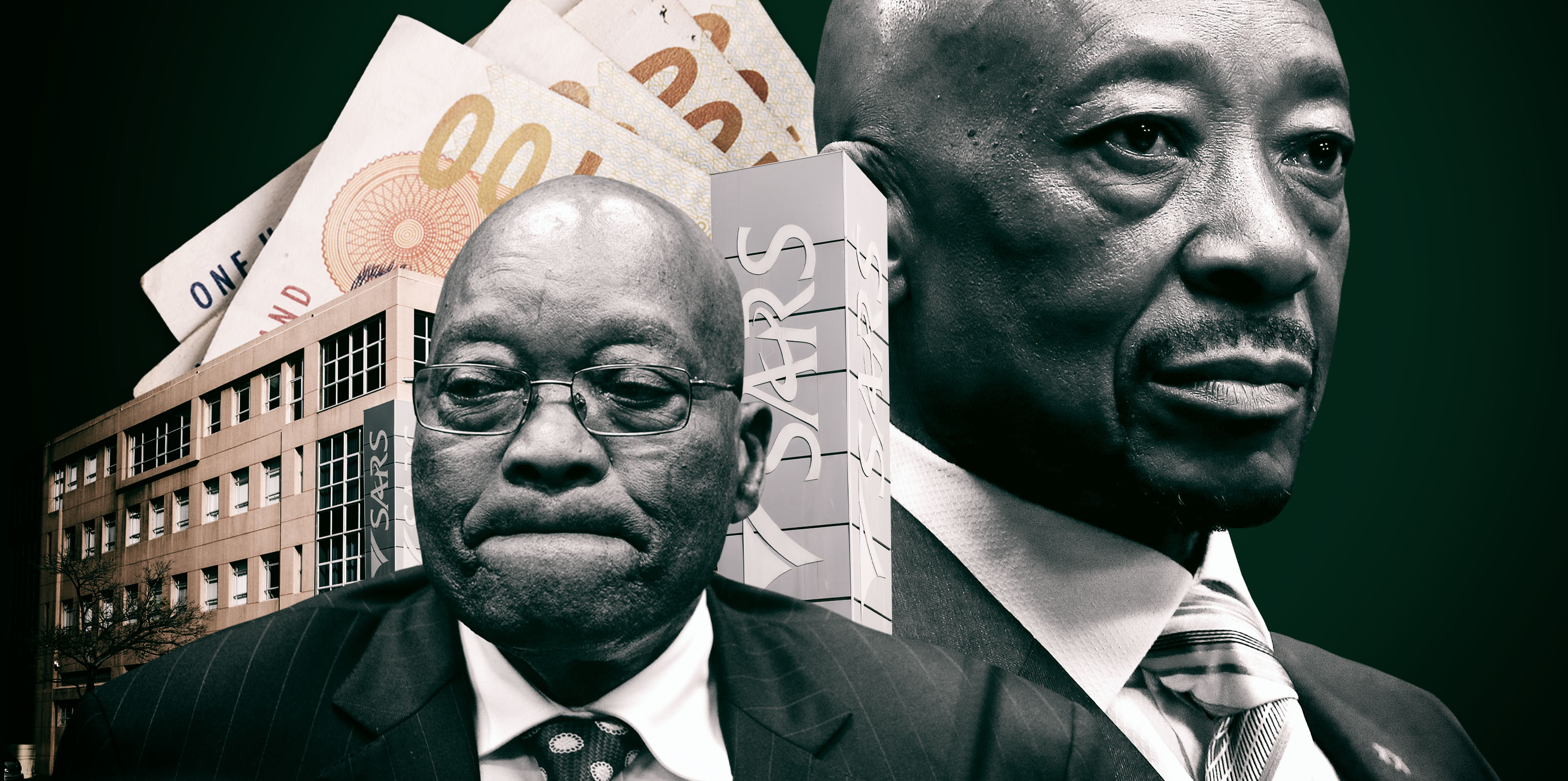The SA Revenue Service (SARS) is a classic example of how a private firm, US-based consultancy Bain & Company – coupled with government officials Tom Moyane and Jacob Zuma – captured and dismantled a state institution which in effect reined in the crooks.
Moyane, fired in 2018 after a four-year wrecking rampage, is long gone. His legacy, and that of State Capture, is one of tragedy. Under his tenure, SARS lost more than 2,000 highly skilled, senior managers and investigators due to State Capture.
Judicial Commission of Inquiry Into State Capture Report_Part 1
In the first of three reports from the State Capture Inquiry, released on Tuesday, Deputy Chief Justice Raymond Zondo dedicated 87 hard-hitting pages in his 874-page Judicial Commission of Inquiry into State Capture Report: Part 1 to Moyane’s sins and the capture of SARS.
These are the five things you need to know:
- Zondo relied on evidence from Moyane; a former Bain & Company employee, Athol Williams, who was tasked with reviewing the firm’s contract with and actions at SARS; SARS employee Vlok Symington and former SARS head of investigations Johann van Loggerenberg; as well as former SARS commissioner and later minister of finance Pravin Gordhan. Zondo had high praise, especially for Williams, who Zondo said stood tall under severe pressure and attempts of bribery by Bain & Company to bury the truth.
- Zondo found Moyane and Zuma played crucial roles in capturing SARS. Zondo noted a “massive failure of integrity and governance at SARS” that started when Zuma parachuted Moyane into the prestigious position of SARS commissioner. Zuma promised Moyane the position of commissioner well in advance of Moyane’s formal appointment, and despite a process of selecting an appropriate candidate from an extensive list of suitable people. He was a man with a mission to wreck the institution. The resultant implosion was caused by “reckless mismanagement of SARS on the part of Mr Moyane. What occurred at SARS was inevitable the moment Mr Moyane set foot there. He dismantled the elements of governance one by one. This was more than mere mismanagement. It was seizing control of SARS as if it was his to have,” Zondo said.
- SARS became a target of State Capture because its “investigatory and enforcement capacity was a hurdle to people involved in organised crime”, Zondo found. The institution was systemically and deliberately weakened to incapacitate its efficiency. One underhand tactic was to use the rumour of a “rogue unit” to make sweeping changes at SARS, including the disbandment of Moyane’s executive committee and hounding out of senior managers. The rogue unit rumour was a ruse, Zondo confirmed.
- Both Zuma and Moyane met with Bain & Company to strategise over how SARS would be brought to heel long before Moyane was appointed as the institution’s head. These meetings also preceded the eventual publishing of the tender that Bain ultimately won in order to restructure SARS. Zondo suggests a collusion to break SARS long before South Africa caught wind of the devastation to follow. “The purpose of these early ‘appointments’ was to ensure that the necessary pre-planning could be done to redirect the resources of the organisation and assume control of the organisation,” Zondo said.
- Zondo recommended that all Bain’s contracts with state departments and organs of state be re-examined for underhand tactics, that the police must probe these contracts and the National Prosecuting Authority is to decide whether any perpetrators are to be prosecuted. Zondo further recommended that the SARS Act should be amended to provide for an open, transparent and competitive process for the appointment of the commissioner, and that Moyane must be charged with perjury in relation to false evidence to Parliament.
Zondo tipped his hat to the Nugent Commission of Inquiry into SARS, the first investigation that found Moyane and Bain & Company at fault. Zondo’s is the second commission to highlight Moyane’s devastating effect at the institution, which Zondo described as a culture of fear and bullying.
Zondo said the evidence before him and his own recommendations dovetail with the findings and recommendations of the Nugent Commission.
SARS is a shadow of its former self. It is making strides towards efficiency once again, but sensitive scabs cover its wounds. These wounds can only be healed by institutional knowledge.
A large portion of that institutional knowledge, however, is barely welcome anywhere in government. Ivan Pillay, Johann van Loggerenberg, Pete Richer and Yolisa Pikie are some of the well-known names. There are many more dedicated former civil servants from SARS who now struggle to find work.
South Africa needs a harsh look in the mirror – two commissions of inquiry have now found that the officials hounded by Moyane were on the side of efficient governance. DM





